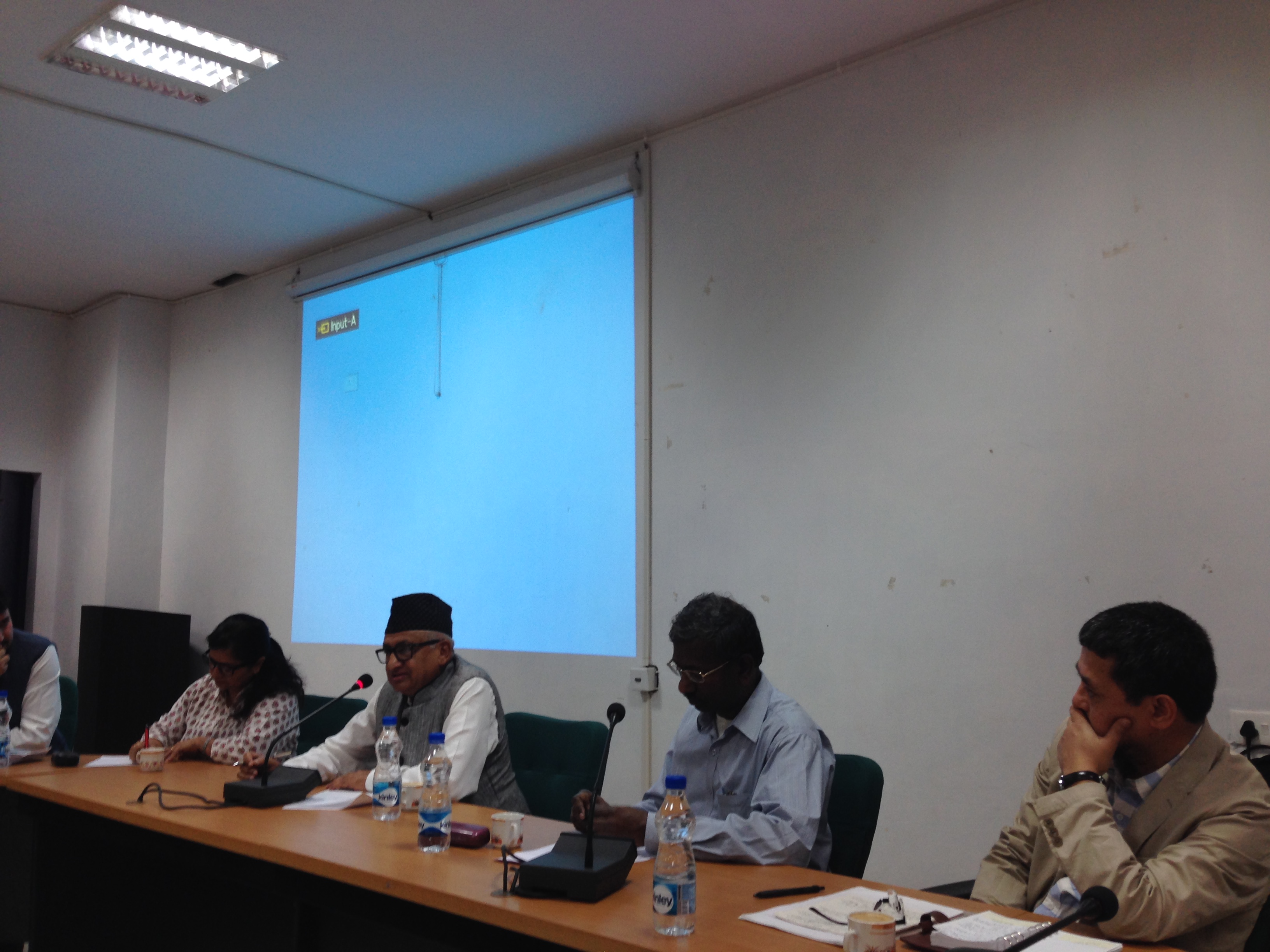 KATHMANDU, March 8 (Nepal Foreign Affairs)–Nepalese Ambassador to India Deep Kumar Upadhyay addressed a group of faculty members and students on the State of Nepal-India Relations at the Centre for South Asian Studies, Jawaharlal University (JNU), in New Delhi on Tuesday.
KATHMANDU, March 8 (Nepal Foreign Affairs)–Nepalese Ambassador to India Deep Kumar Upadhyay addressed a group of faculty members and students on the State of Nepal-India Relations at the Centre for South Asian Studies, Jawaharlal University (JNU), in New Delhi on Tuesday.
Ambassador Upadhyay said that the historical cultural bonds, deep rooted people level ties, and geographical proximity make Nepal India relations close and cooperative. He added that the relations between the peoples of Nepal and India can be termed as ‘heart to heart relations’.
Noting that Nepal and India witnessed low-level relations after the promulgation of the Constitution of Nepal on 20 September 2015, the Ambassador said “when bilateral relations suffer, it would become a ‘lose-lose game’, but we cannot afford any lose-lose game”. Ambassador Upadhyay said that Nepal’s new constitution is the final product of the successful peace process and a long democratic exercise by the two constituent assemblies.
He added that important concerns raised by the political parties from Madhesh are accommodated through the recent amendment of the constitution. He further said that Nepal is a culturally and geographically diverse country; it is natural to have differing views and expectations; democratic system and process is important in accommodating concerns and seeking solutions; all issues can be resolved through dialogue; and the question of demarcation of provinces is being taken up by a political committee.
The Ambassador also spoke of the need of looking at politics and trade differently without linking the two issues and underlined that Nepal as a least developed and landlocked country is marching ahead with inclusive development and reconstruction agenda. As Nepal is dependent upon India for 100 percent of its fuel supplies and almost 70 percent of Nepal’s trade is with India, it is critical to have trade and transit facilitation measures for regular and smooth supplies. “With positive thinking and believe in the fact that there is only one truth, we can easily find solution to any problem”, the ambassador added.
The Ambassador emphasised on the need for concerned agencies of both Governments to immediately coordinate for adequate supply of cooking gas and petroleum products as per the present requirement in Nepal so as to end the long queue of common people for fuels and to end the nexus of parallel economy created by fuel smuggling and black marketing.
Highlighting the latest developments and the recent normalisation of Nepal-India bilateral relations, the Ambassador mentioned that Prime Minister K.P. Sharma Oli’s State Visit to India on 19-24 February 2016 was highly successful as the visit was focussed on clearing any misunderstanding and renewing the goodwill and cooperation between the two countries.
Another key speaker of the panel discussion program was Professor Mahendra P. Lama of the Centre for South Asian Studies. He observed that democratic institutions are important in strengthening the change to the grassroots levels. The panel discussion was chaired by Dr. P. Sahadevan, Professor of South Asian Studies. Professor Rajesh Kharat and Professor Sangeeta Thapliyal also spoke on the occasion and shared their perspectives on Nepal-India relations. The panel discussion followed by interactive questions and comments from the students in the audience.

